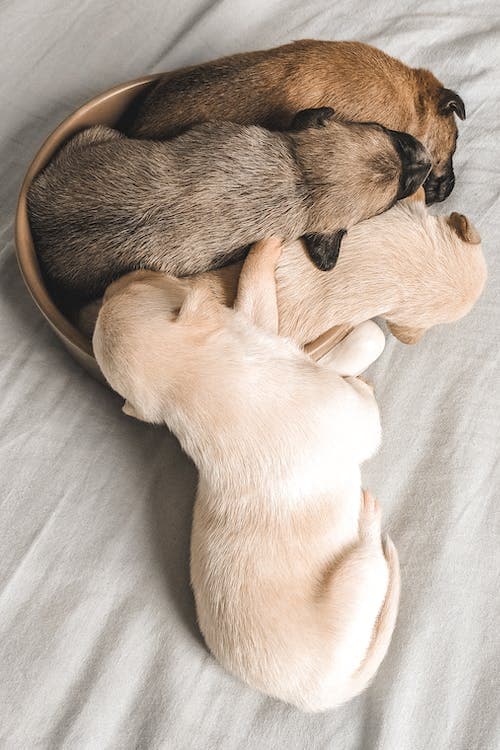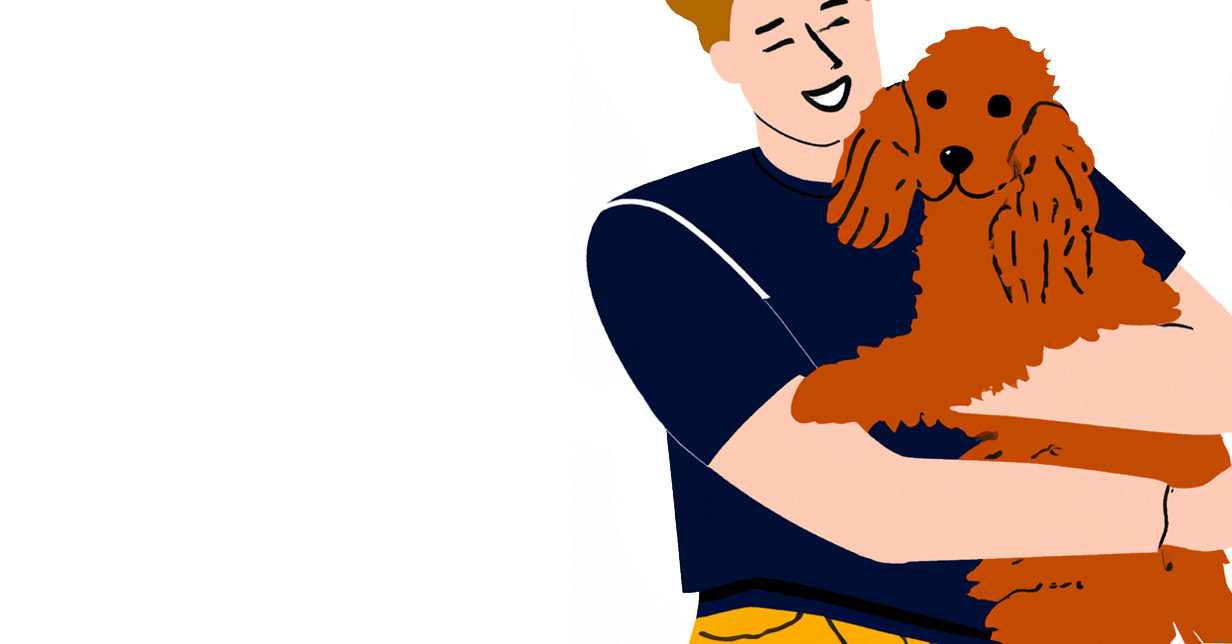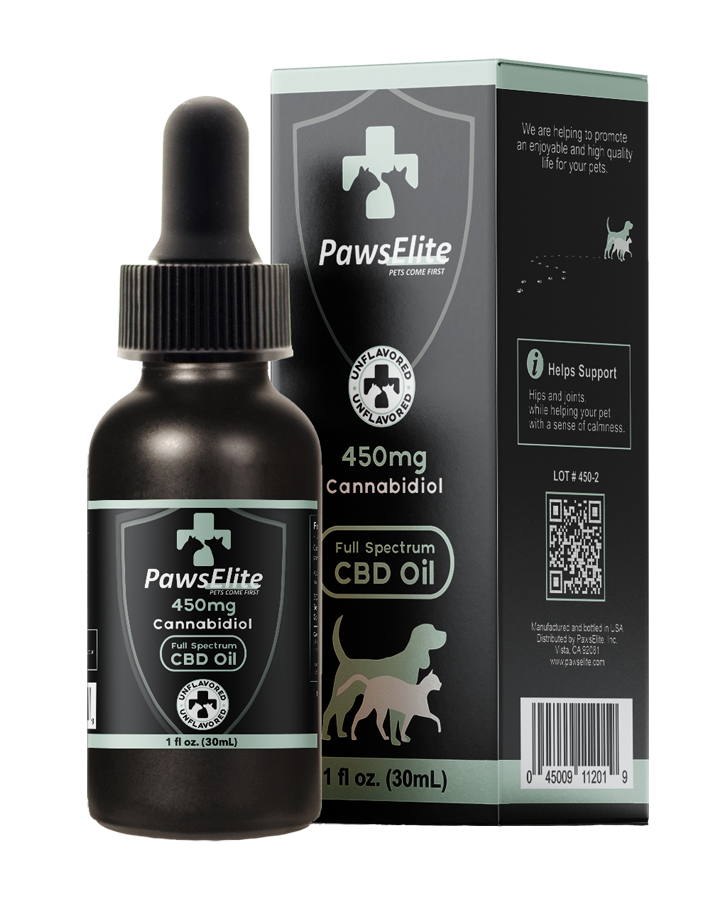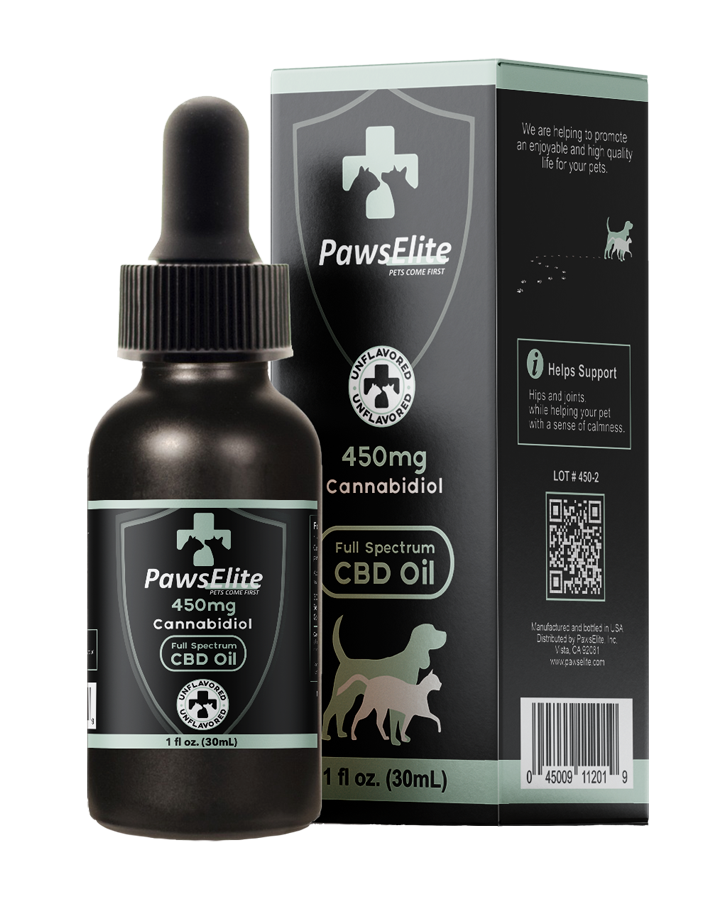
The Ultimate Guide to Crafting a Puppy Sleep Schedule for a Happy and Healthy Pet
Share
Puppies and dogs are adventurous creatures, always ready for a new challenge. But what happens when the adventure is over and it's time for some much-needed rest? How much sleep do our four-legged friends need to be at their best? Join us as we embark on a quest to uncover the mysteries of the puppy sleep schedule and discover the best ways to ensure your pup gets the slumber, they need to tackle each day with energy and excitement.
@pawselite How to Make Sure Your Puppy Gets Enough Sleep...link in bio..#horrify #superbowl #eagles ♬ Happy - Pharrell Williams
When it comes to our puppies and dogs, a well-rested pet is a happy and healthy pet. But what happens to our furry friends when they're awake? Without enough sleep, they can experience a range of problems, from irritability to decreased playfulness and reduced ability to learn new things. By understanding the science behind a well-planned puppy sleep schedule, we can help our four-legged friends live their best lives and be the best versions of themselves. So, let's dive into the exciting world of puppy sleep and learn how to create the perfect schedule to keep your pup rested and ready for adventure.

Helping Your Puppy Catch Sleep During the Day
Getting your puppy to take a nap during the day can be a challenge, but it's important for their overall health and well-being. A well-rested puppy is a happy and energetic puppy, ready to tackle the day ahead. To help your furry friend get the rest they need, we've compiled a list of tips to create the perfect daytime nap environment and establish good sleep habits. From setting a routine to providing mental stimulation and limiting distractions, these tips will ensure your puppy gets the rest they deserve.
Create a comfortable sleeping environment:
Make sure your puppy has a cozy, quiet place to rest, such as a crate or a bed with a blanket.
Establish a routine:
Set a regular nap schedule for your puppy and stick to it as much as possible.
Provide mental stimulation:
Engage your puppy in activities like puzzle toys or training sessions before naptime to tire them out mentally.
Make it dark and quiet:
Close the curtains or blinds to block out light and noise and provide a peaceful atmosphere for your pup to rest.
Limit caffeine and food before naptime:
Caffeine and large meals can disrupt sleep, so try to avoid giving these to your puppy before nap time.
Avoid disturbing your puppy during naptime:
Allow your puppy to sleep undisturbed and avoid waking them up unless it's necessary.
Practice positive reinforcement:
Reward your puppy for good napping habits, such as going to bed without a fuss or staying asleep for the desired length of time.
CBD Oil: A Natural Solution to Promote a Healthy Puppy Sleep Schedule
CBD oil has become a popular natural remedy for various health conditions, including sleep issues in dogs. By optimizing for a puppy sleep schedule, CBD oil may help improve your furry friend's sleep quality and promote a more consistent sleep pattern. CBD oil works by interacting with the endocannabinoid system, which is responsible for regulating various functions, including sleep. It has a calming effect on the body and mind, which can help reduce anxiety and promote relaxation, leading to a more restful sleep. By using CBD oil as part of a well-structured puppy sleep schedule, you can help your puppy get the rest they need to lead a happy and healthy life. So, consider incorporating this natural remedy into your puppy's sleep routine to see if it can help improve their sleep quality and schedule.

How to Get your Puppy to Sleep Through the Night
A good night's sleep is essential for a happy and healthy puppy. But getting there can be a challenge for new puppy owners. If you're struggling with getting your furry friend to sleep through the night, here are some tips to help:
Establish a bedtime routine:
Stick to a regular bedtime schedule for your puppy, including feeding, potty breaks, and playtime.
Create a comfortable sleeping environment:
Ensure your puppy has a cozy and quiet place to sleep, such as a crate or bed with a blanket.
Avoid disrupting sleep:
Avoid waking your puppy up during the night unless it's necessary.
Limit caffeine and food before bedtime:
Caffeine and large meals can disrupt sleep, so try to avoid giving these to your puppy before bedtime.
Exercise during the day:
Regular physical activity during the day can help tire out your puppy and promote a restful sleep at night.
Provide comfort and security:
Consider providing a blanket or toy to help your puppy feel comfortable and secure.
By following these tips, you can help your puppy develop healthy sleep habits and enjoy a peaceful, restful night's sleep.

Understand Your Puppy’s Sleep Schedule by Age
Puppies thrive on routine, structure, and a consistent sleep schedule to help them feel safe and secure in their environment. A well-structured puppy sleep schedule provides many benefits for their physical and mental well-being. The stability of a consistent sleep schedule helps regulate their internal body clock, leading to better and deeper sleep. This not only improves the quality of their sleep but also ensures they have the energy and vitality to play, learn, and grow. By optimizing for a puppy sleep schedule, you can provide your furry friend with a foundation for good health and happiness. So, don't underestimate the power of a well-structured puppy sleep schedule, it can make all the difference for your beloved pet.
The sleep patterns of puppies change as they grow and mature, so it's essential to understand what the average sleep schedule is for your furry friend. Here is a rough guide to the average puppy sleep schedule by age:
Newborn to 2 months:
Newborn puppies sleep 16 to 20 hours a day, mostly in short bursts throughout the day and night.
2 to 4 months:
Puppies in this age range typically sleep 14 to 16 hours a day, with shorter periods of wakefulness during the day.
4 to 6 months:
Puppies at this stage usually sleep 12 to 14 hours a day, with longer periods of wakefulness and playtime.
6 months to 1 year:
As they approach adulthood, puppies sleep 10 to 12 hours a day, with longer periods of wakefulness and increased energy levels.
It's important to remember that these are just rough guidelines and that individual puppy sleep patterns may vary. However, by understanding your puppy's age and sleep needs, you can help ensure they get the rest they need to grow and thrive. So, as your puppy grows, be sure to adjust their sleep schedule accordingly to help them develop healthy sleep habits for life.







